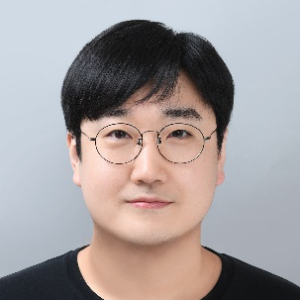Title : Measuring and modulating neuronal excitability with transcranial magnetic stimulation: Approaches and mechanisms
Abstract:
Transcranial magnetic stimulation (TMS) has emerged as a non-invasive neuromodulation technique capable of inducing neuroplasticity, with significant potential in both basic research and clinical applications. This presentation will explore the application of various TMS protocols aimed at assessing and modulating neuronal excitability. First, Dr. Kim will outline approaches for measuring corticospinal and corticocortical excitability. A key focus will be on dual-coil paired-pulse TMS, a method used to investigate corticocortical connectivity between distinct brain regions, including the primary motor cortex (M1). Particular attention will be given to pathways such as cerebellum-M1 and supplementary motor complex-M1, highlighting their functional roles and modulatory effects. Next, the presentation will cover advanced techniques for evaluating cortical excitability in brain regions beyond M1. Using TMS-EEG integration, Dr. Kim will illustrate how neuronal excitability can be studied in areas like the dorsolateral prefrontal cortex (DLPFC), expanding our understanding of TMS applications in diverse cortical areas. Additionally, the effects of repetitive TMS (rTMS) on neuronal excitability will be explored, with insights drawn from both preclinical models and human studies. Dr. Kim will discuss the underlying mechanisms driving these neuromodulatory effects, with a specific focus on post-synaptic plasticity, and will elaborate on the potential for mechanism-based pharmacological augmentation to enhance these outcomes. Finally, the presentation will conclude by discussing the broader implications of these findings, emphasizing their contributions to advancing future research and clinical applications of TMS.




